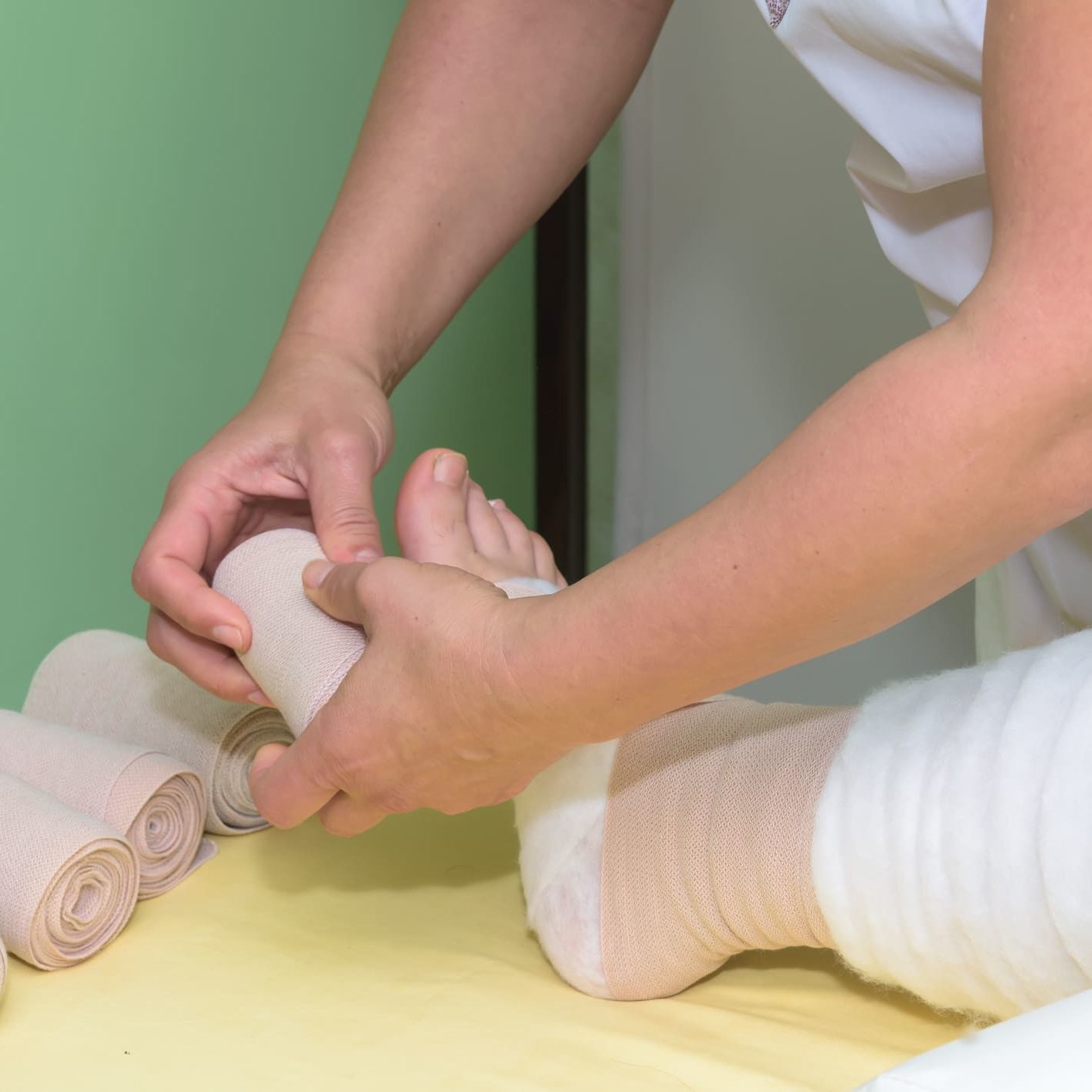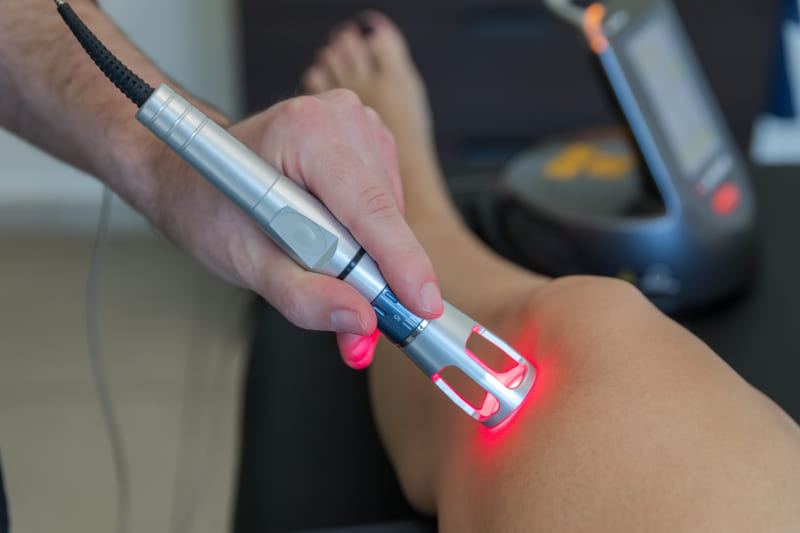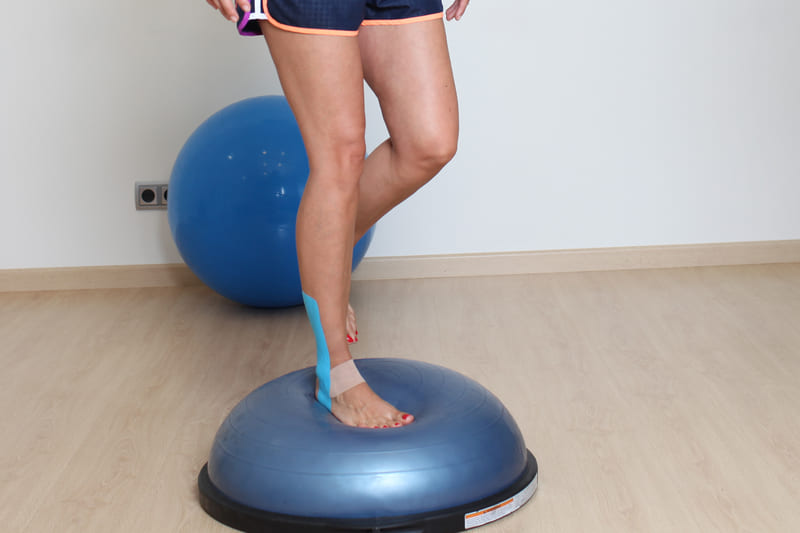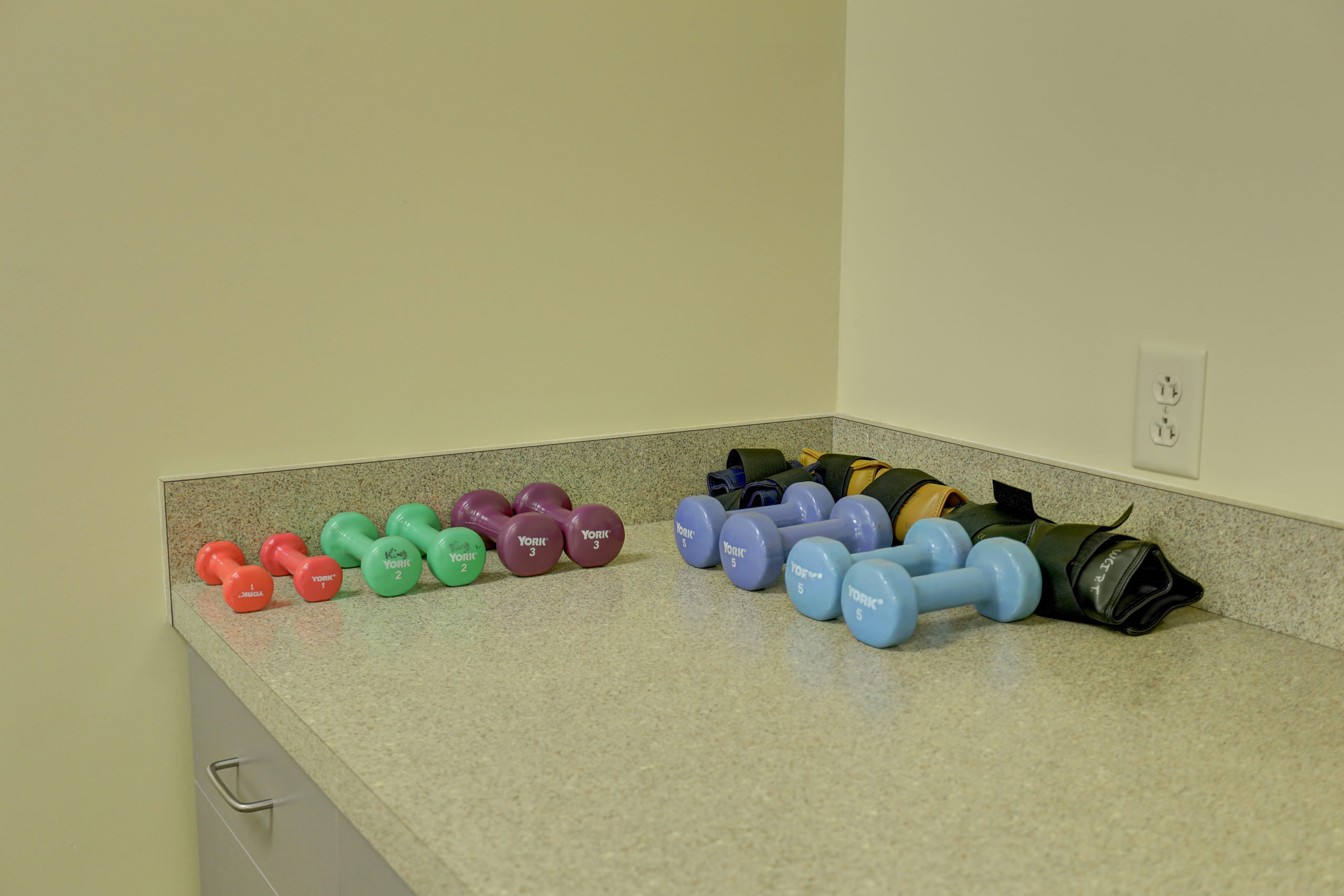
Complete Decongestive Therapy (CDT)
CDT is the gold standard for lymphedema treatment and it will be performed by a Certified Lymphedema Therapist that has completed 135 hours of training in lymphedema treatment. Therapy consists of:
- Manual lymphatic drainage (MLD) which is a light technique applied to mobilize lymph fluid from a swollen area where the lymph system is not working well in an area of the body where the fluid can be managed. You will learn self MLD techniques to perform on your own at home.
- Compression to the affected area. You will need to apply compression to the affected 22-23 hours per day. Initially compression is applied via a “hook and loop” garment or compression bandages. The garment or bandages can be adjusted to fit as your arm or leg reduces in size. Once your arm or leg has reduced in size sufficiently you will be advanced to a traditional daytime garment if you desire. Most patients require a nighttime garment once they advance to a daytime garment. You will need to wear compression daily for the rest of your life to control your lymphedema, unless your therapist instructs you otherwise.
- Skin care is important to prevent infection and keep the affected area healthy. Cleansing the area daily and applying a low pH lotion (Eucerin, Aquaphor) will keep the skin healthy. If you have any redness that is warm to touch, spreading, or streaking this could indicate an infection and you would need to contact your health care provider to see if antibiotics are indicated. An area affected by lymphedema is more prone to develop an infection in the skin which is caused cellulitis.
- Exercise with compression in place is an important aspect of CDT. Your therapist will instruct you in performing exercises at home that will assist with the flow of lymphatic fluid.

Cold Laser or Low Level Light Therapy (LLLT)
Cold laser is also known as LLLT. It is an FDA-approved device that uses light waves to penetrate the skin, increase circulation, decrease inflammation and pain, and promote healing of the tissues. It is not actually cold but is called cold because it does not cause a heat effect. It has been shown to be effective with chemo-induced peripheral neuropathy to decrease pain, increase sensation, and improve balance.

Balance Training
Your therapist will evaluate your strength, flexibility, and balance on your first visit. In combination with your input on your desired outcome, your therapist will establish a plan of care to address any balance deficits you may have. Your program may include stretching, strengthening and balance activities such as standing on one leg. Balance is improved with practice and studies show that if you work on your balance 2 minutes at home, your balance will improve. It will be important for you to continue your home exercise program to continue to show gains in your balance even after completing your course of therapy.

Strengthening
Surgery, chemotherapy, and/or radiation can make you feel weak. On your initial visit, your therapist will assess your strength and develop a program specific for your needs that will address any strength deficits you may have. This will assist you to return to your activities of daily living that you may be currently avoiding or having difficulty performing. Here at Ribbons Physical Therapy, we are aware that if you are still in treatment that you may not be at your best every day. Your strengthening program can be adjusted daily to how you are feeling when you come. Occupational Therapy is also available to help you with any activities of daily living you may be having difficulty with. You will also receive a home exercise program to continue your strengthening on your own at home once you complete your course of therapy.

Lymphedema Surveillance Programs
Removing or radiating over lymph nodes will make you at risk for developing lymphedema. One in five breast cancer patients will develop lymphedema over their lifetime. Left untreated or diagnosed at late stages, lymphedema becomes a lifelong illness that requires daily attention and reduces quality of life. Even though your risk is higher if you have a large number of lymph nodes removed or radiated, developing lymphedema can occur with just one lymph node removal. Our lymphedema surveillance program for melanoma, head and neck, and breast cancer patients follows NCCN guidelines (National Comprehensive Cancer Network) and consists of being seen pre-operatively, then one month post-surgery, and each quarter for one year following surgery to monitor for early signs of lymphedema in addition to monitoring for return of normal movement in the affected area. Baseline measurements of the affected area are obtained and compared over time. If lymphedema presents, it can be addressed early which creates a more favorable outcome.

Therapeutic Exercise
Therapeutic exercise will be an important component of your treatment at Ribbons Physical Therapy. Your program will be individualized to address your needs. We like to think of your exercise program as an exercise prescription. Much like not all blood pressure medicines work the same for every patient, exercises do not work the same for every patient. We understand that cancer survivors – especially while still undergoing treatment, may not be at his/her best and we can adjust your program to fit your needs on a specific day. It is not uncommon to have 2 home exercise programs: one that is lower level that you can perform on days you are not at your best, and one for when you are feeling better. Your exercise program may include strengthening, endurance training, and balance training. Exercise has been shown to assist in preventing cancer recurrence. The American College of Sports Medicine recommends that cancer survivors exercise 90 minutes of moderate-intensity per week combined with resistance training 2 times per week consisting of sets of 15 repetitions to major muscle groups. Your therapist can assist you in developing this type of exercise program if this is your goal.

Cognitive Training
CIC “Chemo brain” (Chemo-Induced Cognitive Impairment) and RICD “Rad brain” (Radiation Induced Cognitive Decline) can affect your ability to process information, remember things, and concentrate on a task. Ribbons Physical Therapy has the region’s only cognitive/memory clinic that is dedicated to caring for the unique deficits experienced by cancer patients. Utilizing the latest techniques and testing equipment our occupational therapist can assist you by assessing your deficits and work with you on developing skills as well as teach you techniques to compensate in areas of your weakness.
